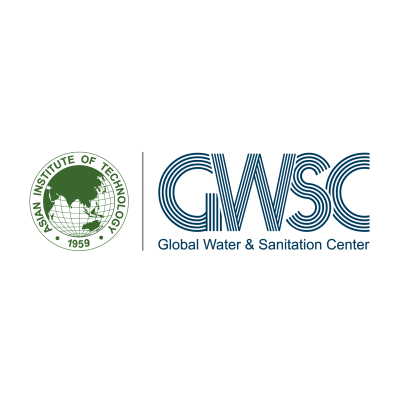Event Details
It has been a fast-moving start to 2025.
At the 𝟮𝟮𝗻𝗱 𝗔𝗳𝗿𝗶𝗰𝗮𝗻 𝗪𝗮𝘁𝗲𝗿 𝗮𝗻𝗱 𝗦𝗮𝗻𝗶𝘁𝗮𝘁𝗶𝗼𝗻 𝗔𝘀𝘀𝗼𝗰𝗶𝗮𝘁𝗶𝗼𝗻 (𝗔𝗳𝗪𝗔𝗦𝗔) 𝗜𝗻𝘁𝗲𝗿𝗻𝗮𝘁𝗶𝗼𝗻𝗮𝗹 𝗖𝗼𝗻𝗴𝗿𝗲𝘀𝘀 & 𝗘𝘅𝗵𝗶𝗯𝗶𝘁𝗶𝗼𝗻, 𝗶𝗻 𝗞𝗮𝗺𝗽𝗮𝗹𝗮, 𝗨𝗴𝗮𝗻𝗱𝗮, 𝗗𝗲𝘃-𝗔𝗳𝗿𝗶𝗾𝘂𝗲 𝗗𝗲𝘃𝗲𝗹𝗼𝗽𝗺𝗲𝗻𝘁 𝗔𝗱𝘃𝗶𝘀𝗼𝗿𝘀 𝘄𝗮𝘀 𝗽𝗿𝗼𝘂𝗱 𝘁𝗼 𝗹𝗮𝘂𝗻𝗰𝗵 𝗪𝗦𝗛 𝗗𝗮𝘁𝗮 𝗟𝗮𝗯𝘀—a program that builds on the achievements of the 𝗚𝗮𝘁𝗲𝘀 𝗙𝗼𝘂𝗻𝗱𝗮𝘁𝗶𝗼𝗻-𝗳𝘂𝗻𝗱𝗲𝗱 𝗪𝗦𝗛 𝗣𝘂𝗯𝗹𝗶𝗰 𝗗𝗮𝘁𝗮 𝗦𝘆𝘀𝘁𝗲𝗺𝘀 𝗣𝗿𝗼𝗷𝗲𝗰𝘁 by expanding and sustaining its efforts in sanitation data system strengthening for performance management, service delivery, and infrastructure planning. Alongside this, WSH Data Labs also introduced key sector outputs, including the 𝗗𝗮𝘁𝗮 𝗦𝘆𝘀𝘁𝗲𝗺𝘀 𝗳𝗼𝗿 𝗡𝗼𝗻-𝗦𝗲𝘄𝗲𝗿𝗲𝗱 𝗦𝗮𝗻𝗶𝘁𝗮𝘁𝗶𝗼𝗻 𝗶𝗻 𝗦𝘂𝗯-𝗦𝗮𝗵𝗮𝗿𝗮𝗻 𝗔𝗳𝗿𝗶𝗰𝗮: 𝗦𝘁𝗮𝘁𝘂𝘀, 𝗖𝗵𝗮𝗹𝗹𝗲𝗻𝗴𝗲𝘀, 𝗮𝗻𝗱 𝗥𝗲𝗰𝗼𝗺𝗺𝗲𝗻𝗱𝗮𝘁𝗶𝗼𝗻𝘀 𝗥𝗲𝗽𝗼𝗿𝘁 𝗮𝗻𝗱 𝘁𝗵𝗲 𝗦𝗮𝗻𝗶𝘁𝗮𝘁𝗶𝗼𝗻 𝗗𝗮𝘁𝗮 𝗦𝘆𝘀𝘁𝗲𝗺𝘀 𝗧𝗼𝗼𝗹𝘀 𝗠𝗮𝗽𝗽𝗶𝗻𝗴 𝗗𝗮𝘀𝗵𝗯𝗼𝗮𝗿𝗱, both developed to help utilities, municipalities, and regulators integrate structured data into sanitation governance and service optimization.
Now, the work of WSH Data Labs continues. Following these milestones, we shift focus to how municipalities are applying these principles—structured data governance, evidence-based decision-making, and scalable digital sanitation solutions—to improve sanitation service delivery. This session spotlights the 𝗜𝗻𝘁𝗲𝗴𝗿𝗮𝘁𝗲𝗱 𝗠𝘂𝗻𝗶𝗰𝗶𝗽𝗮𝗹 𝗜𝗻𝗳𝗼𝗿𝗺𝗮𝘁𝗶𝗼𝗻 𝗦𝘆𝘀𝘁𝗲𝗺 (𝗜𝗠𝗜𝗦), a GIS-integrated sanitation data platform developed in Bangladesh to enhance municipal sanitation planning, faecal sludge management, and inter-agency coordination.
𝗪𝗵𝗮𝘁 𝗬𝗼𝘂 𝗪𝗶𝗹𝗹 𝗚𝗮𝗶𝗻:
✔ How IMIS centralizes sanitation data, enabling better service planning and coordination.
✔ How Bangladesh’s approach to sanitation data governance has informed policy and practice.
✔ What lessons can be drawn for other municipalities looking to optimize non-sewered sanitation systems.
𝗪𝗵𝘆 𝗧𝗵𝗶𝘀 𝗠𝗮𝘁𝘁𝗲𝗿𝘀 𝗡𝗼𝘄
The sector has seen reports, frameworks, and policy discussions, but implementation is what drives real impact. IMIS provides a working example of how structured sanitation data systems can be leveraged beyond data collection—actively informing decision-making, improving service efficiency, and strengthening regulatory oversight.
This session is organized in partnership with the 𝗚𝗹𝗼𝗯𝗮𝗹 𝗪𝗮𝘁𝗲𝗿 & 𝗦𝗮𝗻𝗶𝘁𝗮𝘁𝗶𝗼𝗻 𝗖𝗲𝗻𝘁𝗲𝗿 (𝗚𝗪𝗦𝗖), 𝗔𝘀𝗶𝗮𝗻 𝗜𝗻𝘀𝘁𝗶𝘁𝘂𝘁𝗲 𝗼𝗳 𝗧𝗲𝗰𝗵𝗻𝗼𝗹𝗼𝗴𝘆 (𝗔𝗜𝗧), 𝗧𝗵𝗮𝗶𝗹𝗮𝗻𝗱, 𝗜𝗻𝗻𝗼𝘃𝗮𝘁𝗶𝘃𝗲 𝗦𝗼𝗹𝘂𝘁𝗶𝗼𝗻 𝗣𝘃𝘁 𝗟𝘁𝗱, the 𝗘𝗮𝘀𝘁𝗲𝗿𝗻 𝗮𝗻𝗱 𝗦𝗼𝘂𝘁𝗵𝗲𝗿𝗻 𝗔𝗳𝗿𝗶𝗰𝗮 𝗪𝗮𝘁𝗲𝗿 𝗮𝗻𝗱 𝗦𝗮𝗻𝗶𝘁𝗮𝘁𝗶𝗼𝗻 (𝗘𝗦𝗔𝗪𝗔𝗦) 𝗥𝗲𝗴𝘂𝗹𝗮𝘁𝗼𝗿𝘀 𝗔𝘀𝘀𝗼𝗰𝗶𝗮𝘁𝗶𝗼𝗻, and the 𝗚𝗹𝗼𝗯𝗮𝗹 𝗪𝗮𝘁𝗲𝗿 𝗢𝗽𝗲𝗿𝗮𝘁𝗼𝗿𝘀’ 𝗣𝗮𝗿𝘁𝗻𝗲𝗿𝘀𝗵𝗶𝗽𝘀 𝗔𝗹𝗹𝗶𝗮𝗻𝗰𝗲 (𝗚𝗪𝗢𝗣𝗔).
Event Registration
Click on the link below to register. You will receive further instructions on how to join the webinar.
Webinar Recording

Connect
Contact us
- contact@dev.africa
- www.dev.africa
- +234 707 886 3284
Locations: HQ – Nigeria / DRC / Ethiopia / Ghana / Kenya / Rwanda / Zambia / Sierre-Leone / Burkina- Faso

